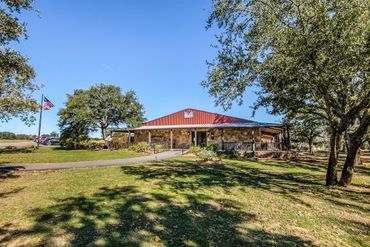
Drug & Alcohol Rehab Centers near College Station, TX
Taking the first step towards recovery from substance use disorder in College Station, Texas, involves understanding the importance of seeking treatment and exploring available payment options.
Treatment Centers near College Station, TX
Open to Travel? Check out Top-Rated Options
All Treatment Centers near College Station, TX
Are You Covered For Treatment?
- Houston Rehabs
- Dallas Rehabs
- Austin Rehabs
- San Antonio Rehabs
- Fort Worth Rehabs
- El Paso Rehabs
- Lubbock Rehabs
- Amarillo Rehabs
- Corpus Christi Rehabs
- Laredo Rehabs
Information About Rehab in College Station
Latest Reviews
Latest Reviews of Rehabs in Texas
Symetria — College Station Outpatient Rehab
The amount of care you receive its not just for the money. They offer you some real help and a lot of us need the help not just a pill.
Area Information
Nestled in East-Central Texas, College Station thrives as a vibrant city known for Texas A&M University. With a population of around 124,0001 that embraces diversity and innovation, this dynamic community offers a blend of academic opportunities, a rich cultural scene, and a warm, welcoming atmosphere.
Substance Misuse and Addiction in College Station, Texas
As home to a major university, College Station, Texas unsurprisingly faces challenges with substance misuse and addiction among its residents. However, statistics on the state of Texas as a whole reflect a significant drug misuse and addiction issue within the state. According to the Centers for Disease Control and Prevention, there were 4,984 drug overdose fatalities recorded in Texas in 2021 alone.2
Drug and Alcohol Rehab
Since no two individuals’ road to recovery is alike, rehabilitation facilities offer a variety of programs tailored to treat addiction and assist individuals at whatever stage they may be.
What Happens in Drug and Alcohol Rehab?
Rehabilitation involves multiple levels of care, including detox, inpatient, outpatient, and aftercare, designed to provide specialized treatment and support to individuals throughout various stages of their recovery journey.
Detox Programs
Detoxification is an essential initial phase in the journey to recovery from substance use disorder. It involves a medically supervised process aimed at safely managing withdrawal symptoms as the body rids itself of the substance. Detox programs prioritize safety and comfort, providing around-the-clock care and support by experienced medical professionals. Medications may be administered to ease the discomfort of withdrawal, ensuring a smoother transition into the subsequent stages of treatment.
How Long Is Detox in Rehab?
The duration of detoxification varies based on multiple factors, including the type of substance used, the individual’s health condition, and the severity of the addiction. Typically, detox lasts anywhere from a few days to a week or more. However, it’s important to note that the primary goal of detox is to safely manage withdrawal symptoms and prepare individuals for further treatment stages rather than being a comprehensive solution to addiction on its own.
Inpatient Drug and Alcohol Rehab
Inpatient treatment programs are intensive havens for those facing severe mental health or substance abuse challenges. Therapy, a cornerstone, comes in both individual and group formats. Individual sessions allow for personalized exploration and goal-setting, while group therapy fosters a sense of community and support among individuals navigating similar issues.
These therapeutic approaches are pivotal in addressing co-occurring disorders, offering a space to delve into the personal components of addiction, identify issues at their source, and build resilience moving forward. With durations typically spanning 30, 60, or 90 days, these immersive programs aim to equip individuals with the necessary tools and support to manage their conditions effectively beyond their time within the facility.
Outpatient Drug and Alcohol Rehab
Outpatient drug rehab offers a flexible treatment option that allows individuals to continue their daily lives while receiving support and therapy for their addiction. This program is well-suited for those with a stable home environment and a strong support system. Outpatient treatment involves scheduled therapy sessions, counseling, and educational programs designed to address addiction issues. It enables individuals to apply learned coping strategies in real-life situations, providing practical tools to manage triggers and stressors that may lead to substance use. Additionally, outpatient programs often emphasize the importance of aftercare and relapse prevention strategies, empowering individuals to maintain sobriety and successfully transition back into their communities.
How Much Does Rehab Cost?
Paying for rehab might seem stressful or intimidating, but various financial assistance options exist to ease this financial burden, ensuring access to necessary treatment. Some of these options include:
- Payment Plans
- Government Grants and Scholarships
- Free Rehab
- State-Funded Rehab
Does Insurance Cover Drug and Alcohol Rehab?
Drug rehab costs can be a significant concern for many individuals seeking treatment. However, insurance coverage often provides partial financial assistance, alleviating the burden of expenses associated with rehabilitation. Widely accepted drug rehab insurances include:
Finding The Best Rehab Center
College Station, Texas Drug and Alcohol Rehab Facilities
Finding the right rehabilitation center in Texas or beyond can be a pivotal step in the journey towards recovery from substance use disorder. Our rehab locator tool serves as a compass, helping individuals discover nearby facilities offering specialized care and tailored programs. However, while Texas is home to many quality treatment centers, there are instances when seeking treatment out of state may be the better option. Choosing a rehab out-of-state can minimize distractions, offering a conducive environment solely focused on recovery.
Sources
- United States Census Bureau. College Station, Texas. July 1, 2022.
- Centers For Disease Control and Prevention. Drug Overdose Mortality by State. March 1, 2022.


































